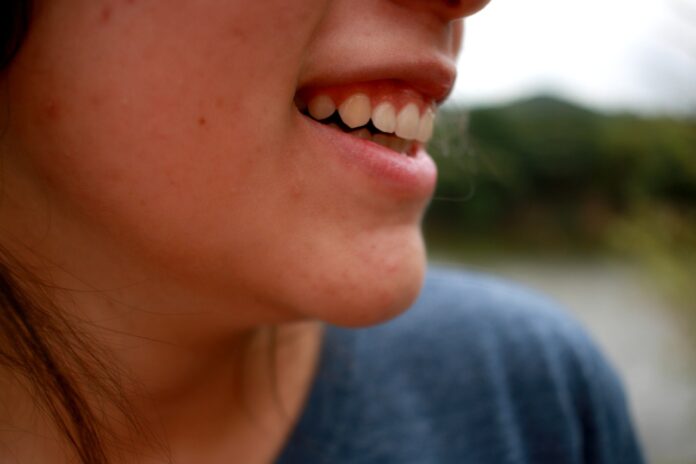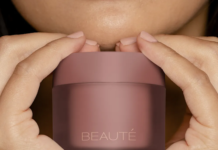A majority of people get acne due to any of the possible reasons such as a hormonal imbalance, a medication’s side effect, pollution, or due to any other internal or external factor. It is quite a common skin condition. To some extent, teenagers get affected by acne, enduring hormonal changes. The intensity of acne can be mild, moderate, and severe. Mild acne includes few or occasional pimples, whereas, at an average level of acne, there occur inflammatory papules. Cysts and nodules indicate the severity of the problem. Most of the time, this skin condition gets excellent with some tried and tested home remedies for acne.
Table of Contents
Causes of Acne
Primarily, a hormonal condition causes acne. Androgenic hormones or male hormones drive this condition, and it becomes active while a person is in his teenage years. Some people are sensitive to such kinds of hormones, and it causes acne when combined with fatty acids inside the oil glands and bacteria on your skin.
Familiar body places where acne generally happens are face, shoulders, chest, and back. These are the places containing oil glands. In the beginning, you can try some home remedies for acne to treat them naturally. But if they continue to worsen, then it’s time to see a doctor.
Acne lesions comprise white and blackheads, little bumps over the skin, cysts, and nodules. At one point, acne is a physiologic occurrence, which is quite reasonable. On the other hand, some conditions can lead to the aggravation of the state, such as:
- In women, fluctuation in hormonal levels during the period of the menstrual cycle.
- Picking or prodding acne injuries.
- Clothing can also be responsible for acne such as sports helmets, hats, and headgear.
Treatment of Acne
Apart from home remedies for acne, there are three kinds of drugs that are effective for acne treatment.
- Antibiotics
- Benzoyl peroxide
- Retinoids
Depending upon the severity of the acne, you may need a minimum of two of the above drugs to treat your acne condition.
Let’s know the three drugs in detail a little bit.
Benzoyl peroxide
It is an OTC (over-the-counter) product such as Stridex and Clearasil. You can get it by prescription, too, like PanOxyl, Benoxyl, and Persa Gel. It targets the bacteria on the skin’s surface, responsible for aggravating the acne. However, one can experience some of the side effects such as irritation or dryness, which is typical.
Retinoids
They are derivative of vitamin A e.g., Differing, Tazorac, Retin-A, etc. Retinoids are helpful in whiteheads and blackheads, which are the first sign of acne. It also treats inflammatory pustules and papules. A Retinoid named Trifarotene treats Vulgaris, a severe acne condition. With all types of Retinoids, irritation and dryness are the usual side effects. Most of them are prescription; Differin is an OTC that is available now.
Antibiotics
You can apply them topically on your skin, such as Erythromycin or Clindamycin. Antibiotics can also be taken orally for controlling the surface bacteria and achieve a reduction in skin inflammation. Combined with Retinoids or benzoyl peroxide, medicines tend to be more productive.
Prevention of Acne
For preventing acne and reduce the damage to the skin by it, here are some tips every individual should follow:
- Use a cleanser, which is especially acne formulated. The acne-treating product contains benzoyl peroxide or salicylic acid. Both of them brilliantly clear sores of acne.
- Do not clean your face traumatizing the acne breakouts and scrub gently. Doing harsh face cleaning can worsen your acne, and it can also cause scarring. While washing the face, clean either by hands, or use cotton pads. Using any terrycloth or other kinds of scrubbing products will rupture the acne sores.
- If there’s a need for a moisturizer, use light moisturizers that are noncomedogenic and doesn’t aggravate acne.
- For women, use a foundation for make-up that is oil-free. Cosmetic products or heavy make-up block skin pores and causes are flaring up of the acne.
Home remedies for acne
It wouldn’t be wrong to say that all people encounter acne at least once in a lifetime. According to an estimate, at some point, 85% of people suffer from acne in their lives. It is among the most commonly occurring skin conditions around the world.
Treatment of conventional acne is quite expensive, and therefore people look for home remedies for acne. There are some undesired side effects of acne, such as redness, dryness, and irritation.
It leads people to look for natural remedies for acne so that they can cure it at their home within their comfort zone. The virtual world is loaded with some of the most popular ways of acne treatment at home.
In this article, here are some home remedies for acne, along with the facts backed up by science. Let’s get started with.
- Acne begins when your skin’s pores are clogged due to the dead skin cells and oil.
- Every skin pore connects to a sebaceous gland. This gland produced sebum, an oily substance. Extra production of sebum can clog pores, and this causes the growth of Propionibacterium acnes (P.acne), bacteria that cause acne.
- White blood cells start attacking P, acne, and thus cause acne and skin inflammation. Common symptoms in acne are white and blackheads alongside pimples. However, in some acne cases, the symptoms are extremely severe.
Manifold factors are responsible for acne development comprising hereditary causes, stress, poor diet, infections, and hormonal changes.
Here are some home remedies for acne that one can go for to put a stop on acne an get healthy and beautiful skin:
Apple Cider Vinegar
You can use apple cider vinegar for acne treatment at home. It is manufactured with fermented apple cider or unfiltered juice of pressed apples. Like other kinds of vinegar, apple cider vinegar has factored in fighting different viruses and bacteria. It contains various organic acids which are capable of killing of acne.
Notably, it has succinic acid that can suppress skin inflammation due to the P.acnes, and it also prevents scarring. It also has lactic acid, which improves scars’ appearance. What’s more, it dries up the excess amount of oil, which is the primary source of acne.
Apple cider vinegar is one of the most effective natural remedies for acne. To use it, mix its one part with three parts of water. Cleanse your face with a mild cleanser and then apply the mixture with a cotton ball. Leave it for 5 to 30 seconds and then rinse it with water.
Stay cautious while using apple cider vinegar as it can irritate your skin and can also cause skin burns. Always use its small amount, and don’t forget to dilute it with water.
Zinc Supplement
It is one of the most popular home remedies for acne. As we all know, zinc is one of the essential nutrients for our bodies. It promotes cell growth, metabolism, hormone production, and immune function.
Zinc is also one of the most used natural remedies for acne. According to some research, people are prone to acne who have significantly low zinc levels in blood in comparison to those people having clear skin.
Several studies suggest that oral intake of zinc reduces acne. Though an optimal zinc dosage hasn’t been recommended yet to achieve a significant acne reduction, 30 to 45 mg elemental zinc is sufficient to take every day.
Here, elemental zinc means zinc quantity available in the compound. It is available in diverse forms, and every one of the ways contains a differing elemental zinc amount. The greatest extent of elemental zinc is present in zinc oxide, which is 80%.
The safe upper limit for zinc intake orally is 40mg/day. It would be advisable not to cross the recommended amount until your doctor prescribes it — consumption of other zinc results in adverse effects such as gut irritation and pain in the stomach.
People suffering from acne usually have lower levels of zinc, so it’s best to take the suggested amount of zinc orally for reducing acne.
Honey and Cinnamon Mask
Cinnamon and Honey are readily available in every home. That’s why it is the best acne treatment at home when you have nothing for the procedure. Both of the said ingredients are rich in antioxidants.
It is highly useful to apply antioxidants on your skin for the reduction in acne in comparison to the Retinoids and Benzoyl Peroxide. These two most common medications for acne have antibacterial properties. The antioxidants they contain are vitamin B3, SAP (Sodium Ascorbyl Phosphate), a Vitamin-C derivative, and Linoleic fatty Acid(Omega 6).
just like the Benzoyl Peroxide and Retinoids, cinnamon and honey can fight bacteria alongside reducing skin inflammation. With these properties, they can be beneficial for acne-prone skin.
To make a mask with cinnamon and honey, mix two spoons of honey with one spoon of cinnamon powder and make a paste. After cleansing your face with a mild cleanser, apply the prepared mask, and leave as it is for 10 to 15 minutes. Rinse it with water and pat dry your face.
Tea Tree Oil
It is an extraction from the Melaleuca Alternifolia leaves. This tree is found in native Australia. Tea tree oil is widely recognized as having plenty of properties for fighting bacteria. It also reduces skin inflammation.
Using 5% of tea tree oil on the skin effectively mitigates acne. It diminishes the adverse effects of acne-like irritation, burning sensation, and dryness in comparison to Benzoyl Peroxide. Since it is quite potent, therefore, dilute tea tree oil before you apply on the skin.
To use tea tree oil as acne treatment at home, mix its one part with nine parts of water. Soak a cotton ball in the mixed liquid and apply it to the skin’s affected parts. You can also use a moisturizer if needed.
Green Tea
Green tea has an ample amount of antioxidants, and it promotes good health too. Applying it to your skin directly helps a lot in acne treatment. It happens because it contains tannins and flavonoids, which help to deal with skin inflammation and killing bacteria.
Green tea provides an antioxidant called EGCG (Epigallocatechin-3-Gallate), which reduces sebum build-up and fights inflammation. It also inhibits the P.acnes growth in people struggling with acne skin. There are several lotions and creams available containing green tea in the market. However, it is best and convenient to make a mixture by yourself at home. To use green tea for the treatment of acne, boil it in water for 3 to 4 minutes and leave it for cooling.
Take a cotton ball and apply the tea directly to the skin. You can also fill the tea in a spray bottle and then use it accordingly. Besides applying the liquid tea with cotton, you can make a mask mixing the remaining tea with honey.
Witch Hazel
The leaves and bark of a shrub known as Witch Hazel, are used to extract Witch Hazel. Found in North America, it is rich in tannins that have potent anti-inflammatory and antibacterial properties.
Therefore, it is one of the most common treatments for a varied array of skin conditions comprising eczema, burns, dandruff, varicose veins, bruises, acne, and insect bites too. Applying it to your skin can result in a decreased level of acne and soothing it at the same time.
Aloe Vera
It’s a tropical plant, and its leaves form a clear gel. The Aloe Vera gel is widely used in creams, soaps, lotions, and ointments. It is also commonly used as a treatment for rashes, abrasions, mild to severe skin conditions and burns too.
When you apply Aloe Vera gel directly on the skin, it treats injuries, heals wounds, and fights inflammation. It has sulfur and salicylic acid, which are the essential ingredients for acne treatment. You can either use the freshly scraped gel from Aloe Vera leaves or buy it from the nearest store. For individuals having acne-prone skin, it is highly beneficial. Try it today and say bye to acne.
Takeaway
Now that you have an idea about the major home remedies for acne, make sure you use them correctly. Acne is a sensitive thing and to deal with it you must be gentle enough not to injure yourself in the process.





